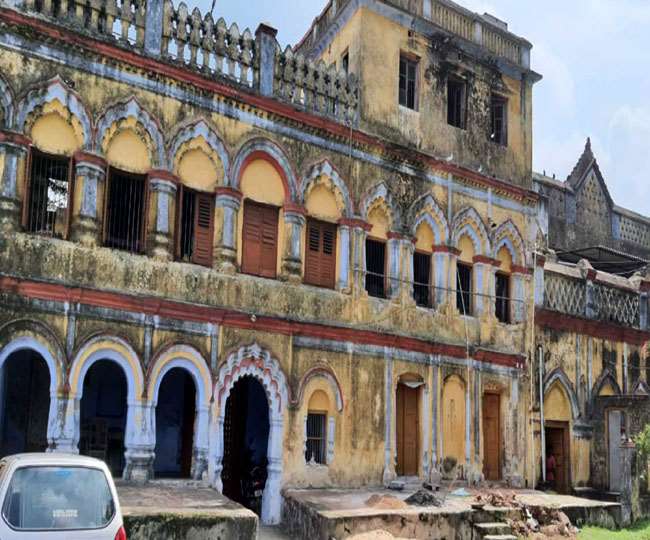- By Lakshay Raja
- Fri, 14 Aug 2020 02:20 PM (IST)
- Source:JND
New Delhi | Jagran News Desk: The splendid havelis of Masnodih village — located about 15 kilometres from Jharkhand’s Koderma district headquarters — are the vestiges of the region's golden past, when the mica business was at its peak here. The village has about a dozen haveils, each having around eighty to ninety rooms. Barring two or three that underwent renovation, these havelis have either turned into compete ruins or are in dilapidated condition.
The havelis are located in a single campus of about 200 acres. The complex inhabits several mango orchards and about half a dozen temples, built by the same family that lived there. The story of these havelis starts from the Baratgarh estate under Nawada district of Bihar.

Tripurari Singh — a descendant of this family — tells us that his ancestor Dharmanarayan Singh was the king of the Baratgarh estate. He left everything during the riots that took place there about two hundred years ago and came to live in Masnodih. At that time, the area was sparsely inhabited and wild. The region was rich in mica. Singh, who had four sons — Stormani Singh, Ganga Singh, Jhari Singh and Kedar Singh — purchased land in the region and started Mica business.

The havelis were built over the years from the immense wealth generated from the Mica business. Each of these havelis have around 80-90 rooms. Over the years, most of them, barring two or three, have dilapidated due to lack of care.

As evident from their names Naulakha and Tehra Lakha, two of these havelis were built at whooping costs of nine lakh and thirteen lakh rupees in the times when a bag of cement used to cost merely a rupee.
67-year-old Girish Sinha alias Moti Prasad Sinn, a descendent of this family, is a graduate of Sant Columbus College Hazaribagh. His sons are IITians and are employed in a reputed company in Pune.

According to Girish Sinha, his ancestors purchased hundreds of acres of land after coming here Baratgarh. The family owned about 50 mika mines. In the 1940–50s, when there was no electricity in the entire district, including the town of Jhumritilaiya, the family owned their own power house to supply power to these havelis.

The remains of the powerhouse still exist today. Gradually, the family members became alienated from Micah's business and the business shrank. The new generations of the family today are studying or working in cities.
The family used to have close ties with Bihar politicians, including the first Chief Minister of Bihar Krishna Singh.

